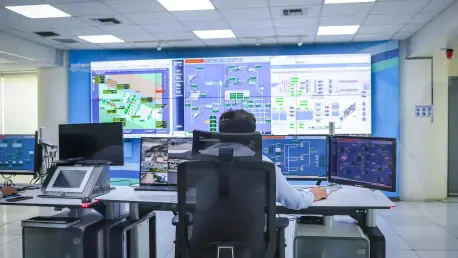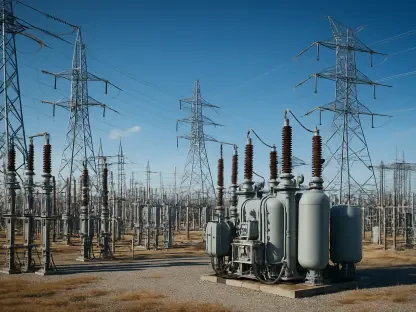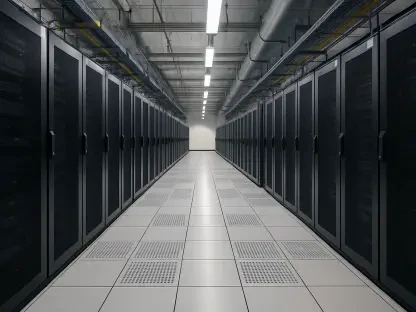The surge in cloud computing and artificial intelligence has escalated the energy demands of data centers, posing significant challenges for both developers and consumers. A recent study by Harvard Law highlights the critical issue of shifting energy costs from data centers onto consumers, raising questions about fairness and sustainability. As the digital age advances, the need for a balanced approach becomes increasingly pertinent. Chris Crosby, CEO of Compass Datacenters, offers crucial insights into managing these energy demands in a way that does not burden ratepayers, underscoring the importance of innovation and collaboration in addressing this evolving challenge.
Navigating Regulatory Challenges
Shortcomings in Existing Frameworks
The current regulatory systems governing data center energy consumption often fail to differentiate between genuine and speculative demand. This oversight places undue financial strain on utilities required to plan infrastructure based on potentially erroneous speculative project requests. The antiquated will-serve model compels utilities to develop resources to meet specified project needs, even those that may not materialize, leading to financial waste and potential consumer burden. These infrastructural investments, made in anticipation of demand that may never be actualized, leave ratepayers vulnerable to absorbing the resulting costs when projects do not proceed as planned.
Speculative Development and Its Impact
A pressing concern is the speculative approach adopted by some developers who request utilities under the will-serve model, resulting in a pseudo demand surge. Such speculative practices exacerbate infrastructural strains as utilities are obligated to build capacity in accordance with exaggerated projections. Compass Datacenters criticizes this gold rush mentality, emphasizing the tangible costs inflicted on consumers as speculative ventures falter and infrastructure investments remain unutilized. By highlighting these pitfalls, Compass illustrates the urgent need for regulatory reform and more accurate methodologies that consider the authenticity of demand.
Innovative Solutions by Compass Datacenters
Promoting the Co-Serve Model
Compass Datacenters advocates for a paradigm shift in the approach to energy needs through its co-serve model, which fosters collaboration with utility providers. This innovative model seeks to shield ratepayers from unwarranted financial burdens by engaging utilities proactively in planning and funding infrastructure. By aligning interests through shared risk strategies, Compass aims to cultivate a more efficient and fair allocation of resources. Such collaborative efforts facilitate better forecasting of genuine demand, mitigating speculative risks and ensuring that infrastructure development accurately reflects the community’s energy requirements.
Investment Initiatives for Community Benefit
Compass Datacenters has undertaken substantial investments to underscore its commitment to community energy reliability. Recent initiatives include a $20 million expenditure to secure transmission line rights of way and an additional $52.5 million designated for substation development in North Texas. These strategic investments reflect a dedication to absorb infrastructure costs internally, safeguarding consumers from financial spillover. They exemplify Compass’s dual focus on meeting its own operational needs while enhancing the broader community’s energy resilience and capacity. By advocating infrastructure development that benefits all stakeholders, Compass sets a precedent in responsible energy management.
Ensuring Fair Consumer Rates
Tailored Rate Negotiations
A pivotal aspect of managing data center energy demands involves individualized rate negotiations between large industrial power users and utilities. Ensuring fair rates through state utility commissions mitigates the potential for consumers to bear excessive costs reflected in residential bills. Such negotiations are instrumental in ensuring that commercial entities like data centers pay equitably according to their consumption levels, thus relieving residential ratepayers from disproportionate energy costs. This practice not only fosters equitable resource distribution but reinforces transparency in rate-setting processes.
Creative Tariffs and Infrastructure Growth
With the burgeoning impact of cloud computing and AI on everyday life, a forward-looking approach to infrastructure growth remains imperative. Creative tariffs represent an effective tool whereby commercial and industrial customers can proportionately contribute to necessary capacity expansions. These tariffs enable equitable sharing of costs associated with infrastructure upgrades, ensuring that growth in power demands does not translate into undue consumer expenses. By balancing infrastructure investment with equitable tariff structures, the electricity market retains its competitiveness while safeguarding economic stability and cybersecurity.
Future Considerations for Energy Management
Embracing Collaborative Approaches
Looking ahead, the continued evolution of data center power management necessitates embracing collaborative approaches that integrate technological innovation with community interests. The transition towards co-serve models represents a key strategy in ensuring sustainable energy solutions that prioritize both operational efficiency and consumer protection. The insights provided by Compass Datacenters illustrate how data center developers can balance energy needs with societal advancements, promoting economic growth without imposing financial strain on consumers.
Sustaining Growth and Security
The boom in cloud computing and the rise of artificial intelligence have considerably increased the energy demands of data centers, which present significant challenges for developers and consumers alike. A recent Harvard Law study has cast a spotlight on the critical issue of transferring energy costs from data centers onto consumers, raising concerns about equity and sustainability in this ever-evolving technological landscape. As we delve deeper into the digital era, finding a balanced approach to managing these energy demands becomes increasingly important. Chris Crosby, the CEO of Compass Datacenters, shares valuable insights into addressing these energy challenges without overwhelming consumers. He emphasizes the significance of innovation and teamwork to navigate this complex issue successfully. It is imperative that the industry explores sustainable solutions that can accommodate the expanding technological needs without unfairly burdening ratepayers or compromising efficiency.









